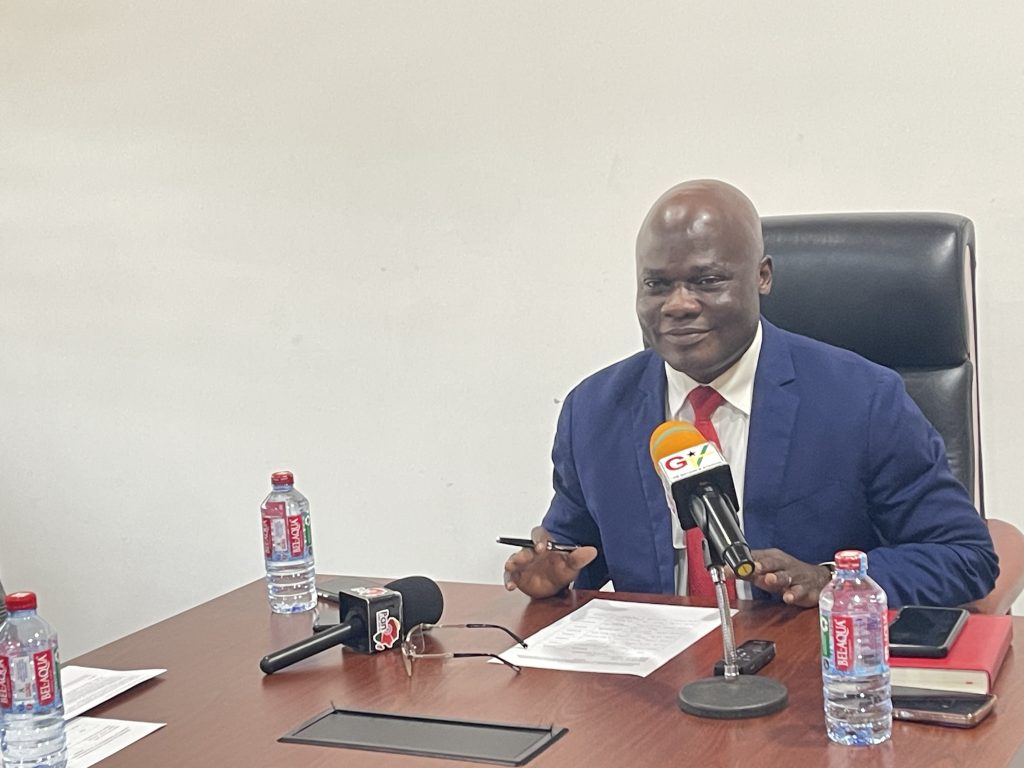By Edward Dankwah
Accra, Feb 28, GNA – The Local Government Network (LoGNet), a Civil Society organisation (CSO) in the local government space has pledged its support, cooperation and collaboration to the Ministry of Local Government, Chieftaincy and Religious Affairs (MLGCRA).
The LoGNet said their support to the Ministry would ensure that it achieved its vision and mission, and by extension, contribute significantly towards achieving the political manifesto of the government, which would lead to an improvement in local governance.
During a visit by the LoGNet to the Ministry, Mr. John Nkaw, Chairperson of LoGNet, on behalf of the delegation, congratulated the Minister on his appointment into the MLGCRA after a successful vetting and approval by the ninth Parliament of the Republic of Ghana.
“Your selection is a clear recognition of your dedication, expertise and unwavering commitment to public service over the years, and your active interest in contributing towards legislation and public service in Ghana is not obscured,” he added.

He said the appointment of the sector Minister was timely as there was the growing need for effective leadership to address private challenges affecting effective local governance, including delays in the release of the District Assembly Common Fund, and many others.
Mr. Nkaw said the leadership and members of LoGNet had great confidence in the Ministry to push and drive the agenda of government, which was directly linked to the promotion of good governance in the country.
He said LoGNet envisioned to compliment government policies, special initiatives, programs that sought to enhance local governance, empower chieftaincy institutions, strengthen religious tolerance and ensure effective local governance, service provision and development in the country.
Mr. Ahmed Ibrahim, the Sector Minister, said given the extensive experience of LoGNet in this field, their input was invaluable, particularly during the reformative stage of the Ministry.
He said the Ministry of Local Government was crucial to the overall performance of the government as it had a nationwide presence and played a key role in addressing local needs and concerns.
The Minister said the previous government’s failure to release the District Assembly Common Fund had prompted President Mahama to reintroduce the capping fund, redirecting statutory funds like the Common Fund, NHIS, and GET-fund towards development authorities.
He said previous arrangement, where 261 districts across 16 regions in Ghana, were divided into three development authorities: coastal development, building development, and medical development had been dissolved, as it was deemed ineffective.
Mr. Ibrahim said under the new government, these development authorities had been reintegrated into the Local Government Ministry to enhance local governance and development by streamlining funds and decision-making processes.
“The 16 regions in Ghana will now have their development initiatives coordinated directly by the Local Government Ministry to improve the efficiency and effectiveness of local development projects,” he added.
He said the Ministry encompassed all key stakeholders at the district and community levels, including traditional leaders, religious leaders, and District Chief Executives (DCEs).
He said when these three pillars of the community converge to discuss and decide on development initiatives, their collective decision carried significant weight and authority, making it a formidable force for driving community growth and progress.
The Minister said with decentralisation now fully in place, they were equipped to fulfill their core mandate, thereby inviting assessments of their performance based on these established parameters.
He said the Ministry was committed to delivering not just good governance, but also accountable governance in Ghana.
Mr. Ibrahim said lack of proper decentralisation had hindered DCEs from fulfilling their roles and leveraging local revenue streams but effective decentralisation would enable local governments to generate sufficient revenue through property rates, potentially rendering the Common Fund redundant.
GNA